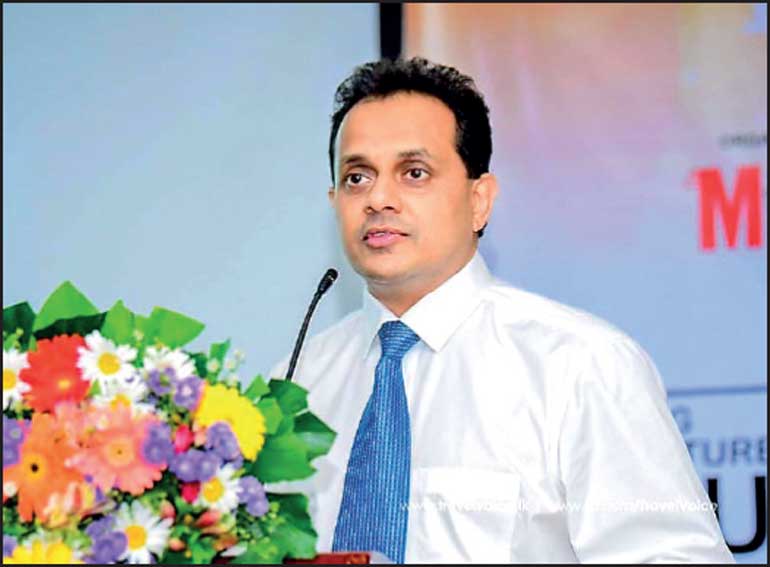Wednesday Feb 18, 2026
Wednesday Feb 18, 2026
Friday, 8 September 2023 00:15 - - {{hitsCtrl.values.hits}}

Dr Rohantha Athukorala at his alma mater PIM, University of
Sri Jayewardenepura
The advertising spend at rack rates registered last year was Rs. 161 billion at a +14% growth, even though the economy shrank by 7.8%, which means Sri Lankan organisations yet believed in the country even with all the challenges, governance issues and poor policy planning such as, the management of the current drought, said Rohantha Athukorala, Country Head for Clootrack Sri Lanka, the Maldives and Pakistan.
He was the guest speaker in the MBA program, PIM, University of Sri Jayewardenepura.
From the Rs 161 billion spend there must have been contract deals by large spenders and media stations, hence, the exact spend could be lower but the point is the optimism that exists, he said. It is estimated that 2023 would have a spend of Rs.190 billion given the current trend of marketing spend as at end July.
The top two channels Derana and HIRU absorbed half the TV spend and registered a growth of 17% on the medium making it the choice of the business community for awareness and brand equity building. Normally, we see a similar spend on below the line activity such as, sponsorships, consumer promotions and trade marketing said Athukorala. The best time to build brand equity in a consumer's mind is, due to a recession as the share of voice is low in categories.
The burning issues cited by the corporate sector as per the recent Nielsen study are, the spiraling electricity prices, increasing costs of raw material, import restrictions, the high price of petrol and diesel, difficulty to obtain suppliers to procure raw material, exchange rate fluctuations and the inability to achieve targets due to the contracting disposable income. But the increased share of voice is encouraging.
The Press as a category remains important as it helps form opinions in society while the rest are fleeting media, opined Athukorala. There are 4.8 million TV households in Sri Lanka with 14.6 million people above the age of 15. The challenge is how to sustain this, given that the first quarter 2023 saw an 11.5% GDP decline and research revealed that 73% of households have reduced consumption in food, beverage and grocery items this year. When exports are estimated to drop by 22%, it means the disposable income would shrink, hence the only way to come out of the economic crisis is by driving Free Trade Agreements (FTA) so that exports can be $28 billion from the current 12 billion said the Former Director and Chairman of Sri Lanka Export Development Board. This was the model that Bangladesh and Vietnam adapted while driving tourism must target a seven- billion-dollar within the next two years he said. We have to get out of the crisis by reform and not just restructuring debt, be it domestic or international, Athukorala said.